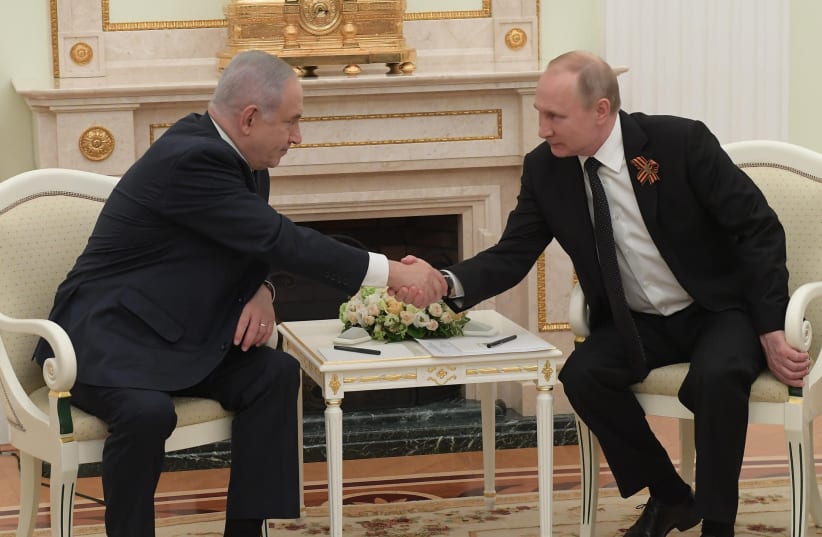A Related Video You May Like:
What balance would Israel want Russia to help it achieve regarding Iran’s presence in Syria?Numbers have been tossed around for months about how far Iranian-associated forces might be able to be kept from the border with a 60 kilometer no-go zone being on the high end and a 10-25 kilometer zone being on the low-end. Freilich said that 60 kilometers “would be optimistic. The real question is can we live with a presence above a zero presence, and with what may become a bigger presence around 10 kilometers from the border.” He said the key was to make sure that any Iranian ground forces presence was far enough off that direct clashes would be avoidable.Elaborating he said that, “no one really cares about a few thousand militia men. But what if it is only a few thousand at the beginning? Then they add a few thousand more. Then they move from rifles to rocket propelled grenades, then short range rockets, then long range rockets with precision capability.”Eventually this could become a second Hezbollah-style Lebanon front, which was the scenario that Israel was trying to head-off before it starts becoming a reality, the former deputy NSC chief stated.He said that, “Hezbollah has around 130,000 rockets in Lebanon. Add a few tens of thousands in Syria and suddenly you have two major fronts. This divides Israel’s attention. I do not know what political constraints might come up given two fronts. Right now, Israel has freedom of action in Syria, but not in Lebanon with Hezbollah because they have created a balance of terror.”Freilich said that this would be more dangerous than Iran’s own ballistic missile capability from its soil stemming from its around 400 rockets which can reach Israel.Taking into account “a conservative estimate” of shooting down 80% of them using the Arrow antimissile system, probably only a few dozen would get through - as with Iraq during the 1991 Gulf War. In contrast, rockets stationed in Syria could get through in much larger and more devastating numbers.“So what are our real red lines? What kind of Iranian presence can we accept and what can’t we accept? We can’t accept missiles, rockers or attack drones - not at any distance. Some Shiite-affiliated troops we can tolerate at a certain distance from the border,” he said.Encouraging the IDF to maintain its current balance of attacking Iranian forces when needed to keep pressure on Russia and Syria to restrain Iran, but “not doing it at a level which would force them into a major response,” he said that “there is no precise recipe” for using force on the border.He was pessimistic about how all of this will intertwine with the Iran nuclear deal crisis, predicting that Iran’s regime will not fall and that the Trump administration has no back-up plan.“What’s going to happen in the next few months is Iran will find out Europe has little choice, but to play along with the sanctions. At some point, Iran will slowly start pulling out” of the nuclear deal and the US will leave Israel with problems with Iran in Syria and the question of how to stop it from moving toward a nuclear weapon.
Ex-deputy NSC chief: Russia may help in Syria to avoid dogfight with Israel
“The only way Israel can achieve gains” in limiting Iran’s footprint in Syria is “through the Russians. The Syrians also do not want to be taken over by the Iranians, but Russia has the key."
